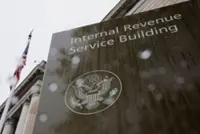FIRST conceptualised by the CIMB Group and its sustainability partner Impacto as the founding sponsors, the CEO Action Network (CAN) is a coalition of business leaders with a purpose and is governed by an appointed steering committee and its chair.
and its sustainability partner Impacto as the founding sponsors, the CEO Action Network (CAN) is a coalition of business leaders with a purpose and is governed by an appointed steering committee and its chair.
The coalition is led by experienced and inspiring sustainability practitioners, committed to lead by example and set new benchmarks.





